2022 Top 10 Global CSR Events
2023-01-18GoldenBee责任编辑0
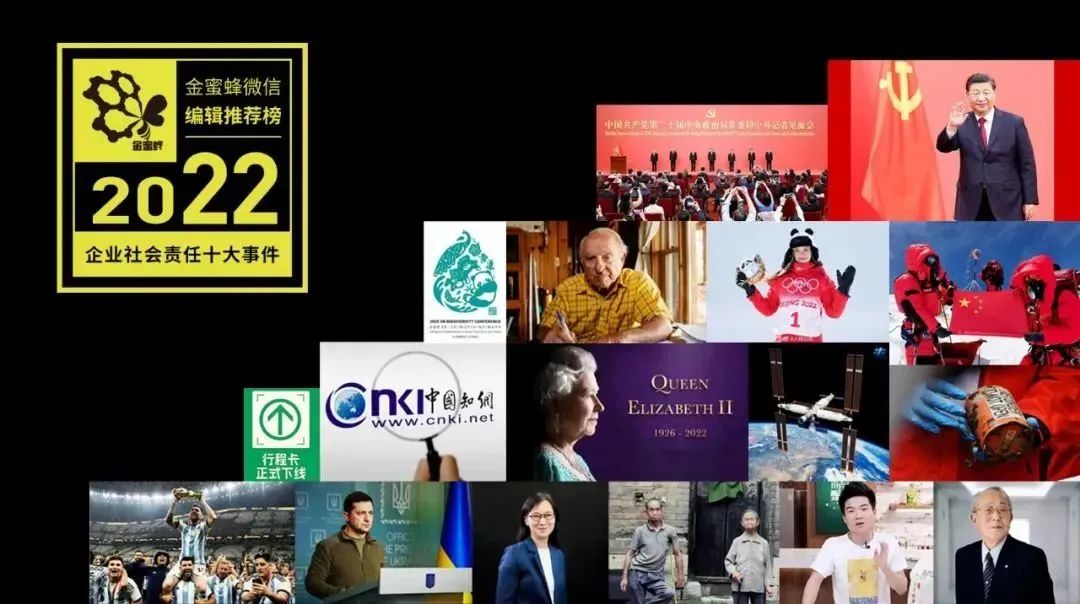
2022 was a year full of twists and turns.
The economic development and vulnerable groups were continuously hit by the COVID-19 pandemic, with increasingly intensified climate-related issues and biodiversity loss and the global energy crisis triggered by Russia-Ukraine conflict. All these twists and turns had slowed our pace towards a sustainable future. The United Nations Sustainable Development Goals Report 2022 warned that "cascading and interlinked crises are putting the 2030 Agenda for Sustainable Development in grave danger".
2022 was also a year full of hope.
Based on the peace, development and cooperation, in addition to continuing to promote economic recovery, countries around the world had become more stable in the process of digitization and greening. What was more exciting is that the two international conferences, COP27 and COP15, yielded fruitful results. Governments, the private sectors and social organizations reached "landmark" resolutions and frameworks in addressing climate change and protecting biodiversity, clarifying the direction for repairing the relationship between mankind and nature.
Since 2006, we have been selecting and publishing the annual list of top 10 CSR events for 17 years. As the first step in 2023, China Sustainability Tribune (formerly known as China WTO Tribune) selected the 2022 Top 10 Global CSR Events (in chronological order) to review and solute all efforts in social responsibility development and welcome a better sustainable world.
1
Over 70 companies demand a global treaty to cut plastic production

On January 17, 2022, more than 70 international brands and financial institutions including Coca-Cola, PepsiCo, Unilever, Nestle, Walmart, BNP Paribas call for a global treaty to cut plastic production. This is the first time that industry leaders have advocated such a strong plastic pollution policy.
Reason for listing:
Plastic pollution is a global issue, requiring enterprises and governments to work together to find solutions. The appeal of these leading enterprises and institutions allows to promote the negotiation of the world's first plastic limitation convention, calling for establishing a fair competition environment, coordinating global solutions, and leading a wider range of plastic reduction actions, which makes a breakthrough in the way of manufacturing, using and reusing plastics.
2
European Commission publishes draft CSRD

On February 23, 2022, the European Commission published its much-anticipated draft Corporate Sustainability and Due Diligence Directive (CSRD). It sets out a proposed EU standard for human rights and environmental due diligence. This includes an obligation for companies to take appropriate measures to identify actual and potential adverse human rights and environmental impacts related to their value chains. EU-companies which have more than 500 employees and a net worldwide turnover of more than EUR 150 million as well as non-EU companies which have net turnover of more than EUR 150 million in the EU have the obligation to incorporate due diligence into the company's policies and conduct supply chain due diligence.
Reason for listing:
The Directive clearly sets out that corporate behavior is crucial to EU’s transition to a climate-neutral and green economy. Meanwhile, given that EU enterprises are operating in a complex environment, and especially, large enterprises rely heavily on the global supply chain, more enterprises need to participate in the due diligence and provide more human rights or environmental risk data related to the value chain.
It puts forward higher requirements for the compliance level of enterprises' sustainable development through integrated risk management framework with unified legislation. For enterprises hoping to enter the EU market, this will also become the "threshold" to meet.
3
SEC proposes rules to enhance and standardize climate-related disclosures

On March 21, 2022, the Securities and Exchange Commission (SEC) proposed the Enhancement and Standardization of Climate-Related Disclosures for Investors under which future US-listed companies should disclose their GHG emissions, "actual or likely material impacts" that climate-related risks will have on their business, strategy and outlook, governance of such risks and climate-related targets or goals when they submit financial reports such as prospectus and annual reports. It clarifies that listed companies need to disclose information about its direct GHG emissions (Scope 1) and indirect emissions from purchased electricity or other forms of energy (Scope 2) and GHG emissions in its value chain (Scope 3).
Reason for listing:
Climate risk will bring significant financial risks to the company. Investors are in urgent need of reliable information on climate-related risk to make wise investment decisions. Strengthening the disclosure of climate data has become a general trend. The rule proposed by SEC will significantly improve the environmental governance and carbon emission data disclosure of US-listed companies, provide more abundant, complete and unified information basis for many investment institutions to make ESG investment, help improve the transparency and comparability of issuers in climate-related risks, and urge companies to better cope with such risks and take advantage of opportunities accordingly.
4
ISSB proposes two sustainability standards

On March 31, 2022, the International Sustainability Standards Board (ISSB) issued its first two exposure drafts for comment: [Draft] IFRS S1 General Requirements for Disclosure of Sustainability-related Financial Information and [Draft] IFRS S2 Climate-related Disclosures, which are based on the four pillars developed by the Task Force on Climate-related Financial Disclosures (TCFD): governance, strategy, risk management, and metrics and targets, and focus on significant sustainability risks and opportunities. It is of great significance for the formulation of disclosure standards for sustainable development.
Reason for listing:
ISSB established in 2021 is to integrate and utilize existing relevant achievements and resources, formulate and issue sustainability disclosure standards to meet investors' demand for high-quality, transparent, reliable and comparable ESG information. The release of the two drafts marks an important step towards the unification of global sustainability standards. Among many sustainability topics, ISSB prioritizes climate-related topics to formulate special disclosure standards, which also reflects the urgency, importance and particularity of climate issues.
5
ILO designates occupational safety and health as a fundamental right at work
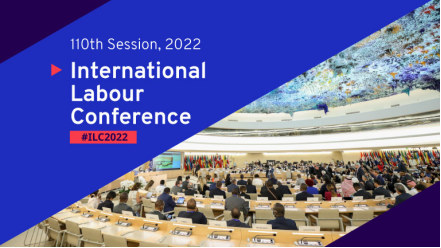
On June 10, 2022, the representative of the International Labour Organization (ILO) adopted a resolution that adds “a safe and healthy working environment” to ILO’s framework on theFundamental Principles and Rights at Work. The measure makes occupational safety and health the fifth element of the framework, joining 1) Freedom of association and the effective recognition of the right to collective bargaining; 2) Elimination of all forms of forced or compulsory labor; 3) Effective abolition of child labor; 4) Elimination of discrimination in respect of employment and occupation.
Reason for listing:
A safe and healthy working environment is the foundation of decent work. Modern working mode, global population growth, climate change, especially under the profound and transformative COVID-19 impact on the labour, a strong and resilient occupational safety and health is particularly important. The adoption of this resolution will further promote the global labor market towards equality and inclusiveness, and promote the government, employers and employees to build healthier and safer labor relations through active dialogue and cooperation.
6
European Parliament adopts CBAM proposal

On June 22,2022, European Parliament adopts Carbon Border Adjustment Mechanism (CBAM), requiring importers of certain products into the EU to pay for the tons of carbon emissions. The price of which would be tied to the price of emissions allowances under the EU Emissions Trading System (ETS). In December 2022, the European Commission and EU governments reached agreement on the reform of the EU ETS. EU plans to implement CBAM in October, 2023 and makes it a pilot through 2025. The CBAM will initially apply to targeted industries–cement, electricity, fertilizers, iron and steel, aluminum and hydrogen, including those with indirect emissions and some downstream products.
Reason for listing:
As a pioneer in climate action, the EU regards CBAM as an important part of the EU carbon market reform, aiming to solve the problem of "carbon leakage" under the EU carbon market mechanism, and encourages EU trading partners to establish corresponding policies to jointly cope with climate change. In the absence of a unified global pricing system at the carbon market, the impact of this mechanism, commonly known as "carbon tariff", on key industries and enterprises will be more reflected in the proactive and leading actions to accelerate decarbonization and improve international competitiveness.
7
COP27 establishes Loss and Damage Fund

On November 20, 2022, the 27th Conference of the Parties to the United Nations Framework Convention on Climate Change (COP27) officially closed. One of the highlights of the conference outcome is that countries have reached an agreement on the long outstanding "Loss and Damage" fund, and agreed to support vulnerable developing countries suffering from climate disasters to cope with climate change through the establishment of a special fund.
Reason for listing:
After over decades of efforts by developing countries, COP27 has put climate compensation on agenda for the first time. The establishment of "Loss and Damage" fund enables developing countries affected by climate change to receive "damage assistance", and facilitates the climate funding arrangement under the Paris Agreement. As the funding gap of global climate change adaptation continues to expand, the private sector, enterprises and financial institutions have the ability to narrow this investment gap, and should play a leading role in ensuring that their funding flows are consistent with the path required to achieve climate and natural goals.
8
European Council gives final green light to CSRD
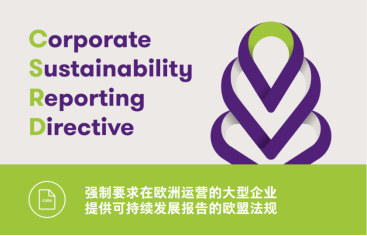
On November 28, 2022, the European Council gave final approval to corporate sustainability reporting directive (CSRD), which is to be implemented from 1 January 2024 onwards. CSRD will formulate new and detailed sustainability reporting requirements. Nearly 50,000 EU companies will have to report their climate and environmental impact, including social and governance matters.
Reason for listing:
As a revision of the EU Non Financial Reporting Directive (NFRD), CSRD has greatly broadened the scope of enterprises that disclose sustainability reports, requiring more comprehensive and accurate information disclosure, which is the EU's effort to lead the global high-quality sustainability information disclosure standards, and also indicates that more transparent ESG practices will become a norm. Europe's strong supervision on ESG will guide enterprises to improve their sustainability governance capabilities through more reliable and high-quality sustainability disclosures, promoting the transition to a sustainable economy.
9
88 countries adopt ISO 26000 as a national standard on its 12th anniversary
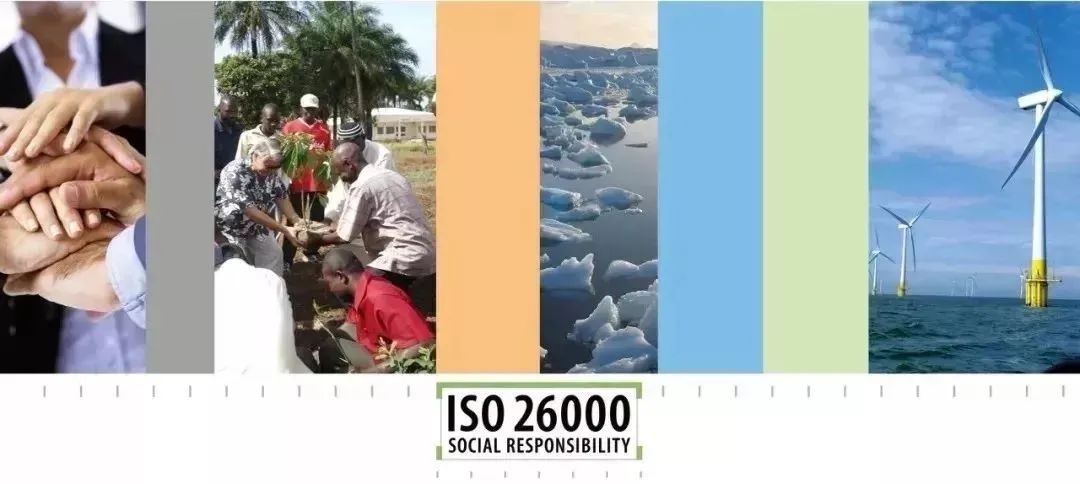
On December 7, 2022, the Global ISO 26000 Conference was held to share to share and exchange the progress of the 12th anniversary of ISO 26000 standard. Launched on November 1, 2010, ISO 26000 is the first real international standard on social responsibility and unifies the cognition of social responsibility around the world. Up to now, 88 countries have adopted ISO 26000 as a national standard.
Reason for listing:
The release of the international standard on Social Responsibility, ISO 26000 , has led the global social responsibility into a new era. The process of formulation, release and the adoption by each country has extremely profound influence and value. Since its release 12 years ago, ISO 26000 has been applied in the management system. It is instructional for enterprises to deepen their understanding of social responsibility and improve social responsibility management. The ideas and methodologies it provides are worth learning, understanding and applying through responsible actions by organizations, individuals and enterprises.
10
The Kunming-Montreal Global Biodiversity Framework encourages and promotes business institutions to act
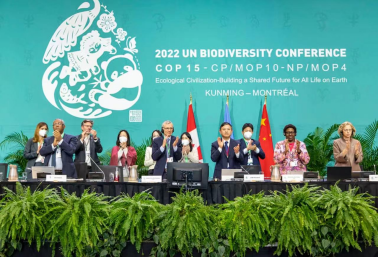
On December 19, 2022, the second part of the 15th Conference of the Parties (COP) to the United Nations Convention on Biological Diversity (CBD) concluded and reached an agreement on the "Kunming-Montreal Global Biodiversity Framework (GBF)", which formulated action norms in the next 10 years. It proposes to encourage and promote business, ensure that all large multinational companies and financial institutions regularly monitor, assess and transparently disclose their risks, dependence and impacts on biodiversity, provide consumers with the information they need, comply with access and benefit sharing requirements and report accordingly, to reduce biodiversity-related risks to business and financial institutions, and promote actions to ensure sustainable production patterns.
Reason for listing:
Whether in terms of global consensus, legislation, regulation or public participation, biodiversity mainstreaming is accelerating. This framework, praised by the organizers as "Paris Agreement" in biodiversity, will urge the private sector and financial institutions to focus on natural capital, incorporate biodiversity into the priorities of production, operation and investment activities, and contribute private sector’s efforts to change the human-nature relationship. Reducing the negative impact on biodiversity from its own operation, consumption, production and other links and increasing the positive impact will also help enterprises reduce risks and identify new opportunities.
About the “2022 Top 10 Global CSR Events”
As an annual record of the CSR policies and practices, China Sustainability Tribune has been selecting and publishing the annual list of top ten CSR events for 17 years since 2006.
In order to ensure a more comprehensive, accurate, open and transparent selection, we seek opinions from external experts from governments, companies, universities and research institutions in the field of CSR to ensure the professionalism, authority and transparency.
Experts participating in the selection of the “2022 Top 10 Global CSR Events” and putting forward opinions and suggestions include:
· Guo Xiuming, former Associate Counsel, Department of Policies, Laws and Regulations, Ministry of Industry and Information Technology
· Xia Guang, former National Ecological and Environmental Protection Inspector of the Ministry of Ecology and Environment, former Director and Researcher of the Policy Research Center of the Ministry of Environmental Protection
· Chen Yuanqiao, Researcher at China National Institute of Standardization
· Zhai Qi, Managing Director of China Business Council for Sustainable Development (CBCSD)
· Cheng Duosheng, former Director of Innovation Working Department of Chinese Enterprises Federation
· Han Bin, Deputy Director of the Employer Work Department of the China Enterprise Confederation, former Executive Secretary-General of UN Global Compact Network China
· Liang Xiaohui, Chief Researcher of Social Responsibility Office, China National Textile and Apparel Council
· Prof. Qian Xiaojun, Associate Dean of Academics at Schwarzman College, Director of Research Center for Green Economy and Sustainable Development, Tsinghua University
· Cui Shengxiang, Professor, China University of Labor Relations
· Xue Dayuan, Professor and Doctoral Supervisor of Minzu University of China
· Li Li, Professor of the University of International Business and Economics, Expert of the Beijing 2022 Winter Olympics Sustainability Advisory Committee
· Guo Yi, Professor of School of Economics, and Director of Business Environment Research Center,Beijing Technology and Business University (BTBU)
· Zhou Weizhong, Professor of Business School, and Director at China Enterprise Research Center, Central University of Finance and Economics
· Yu Zhihong, President and Editor-in-Chief of China Sustainability Tribune
· Yin Gefei, Chief Expert of GoldenBee Thinktank; Deputy Secretary General of ISO 26000 Stakeholder Global Network (SGN)
· Guan Zhusun, Executive Dean of Huazhong University of Science and Technology-GoldenBee CSR Research Institute
Thanks to experts who participated in the selection of “2022 Top 10 CSR Events in China”.
Best Practices
- The 100-year brand — Air Liquide also has a sense of juvenile
- Beijing Public Transportation Corporation: Developing green transportation to build a harmonious and livable capital
- CGN: Building a modern factory in barren deserts and developing a new win-win cooperation model along “Belt and Road”
Upcoming Event

All the materials on the site “Source: XXX (not from this site)” have been reprinted from other media. They do not imply the agreement by the site.
All the materials with “Source: CSR-China Website” are the copyright of CSR-China Website. None of them may be used in any form or by any means without permission from CSR-China Website.
GoldenBee Official WeChat
Copyright © Csr-china.net All Right Reserved.
京ICP备19010813号










